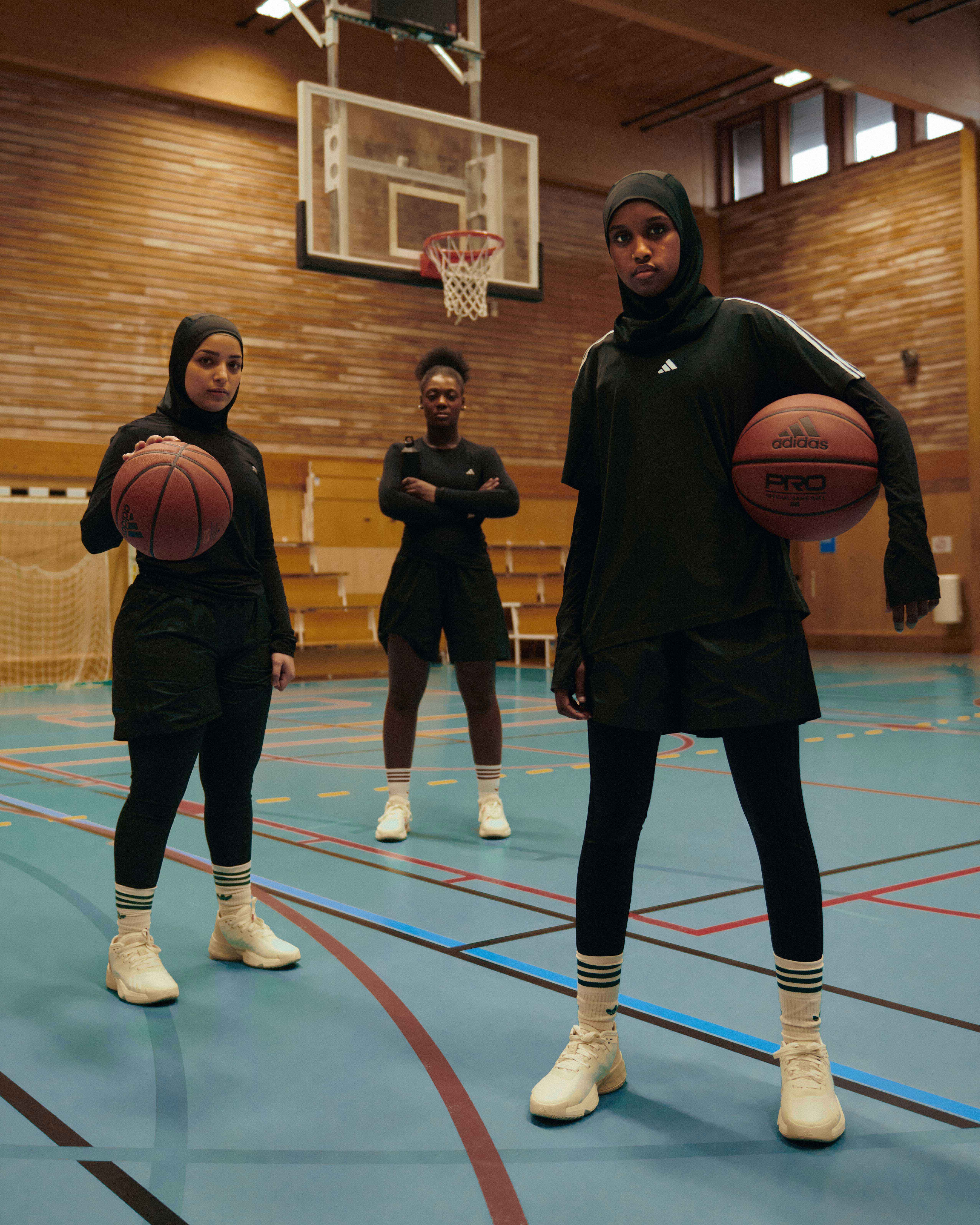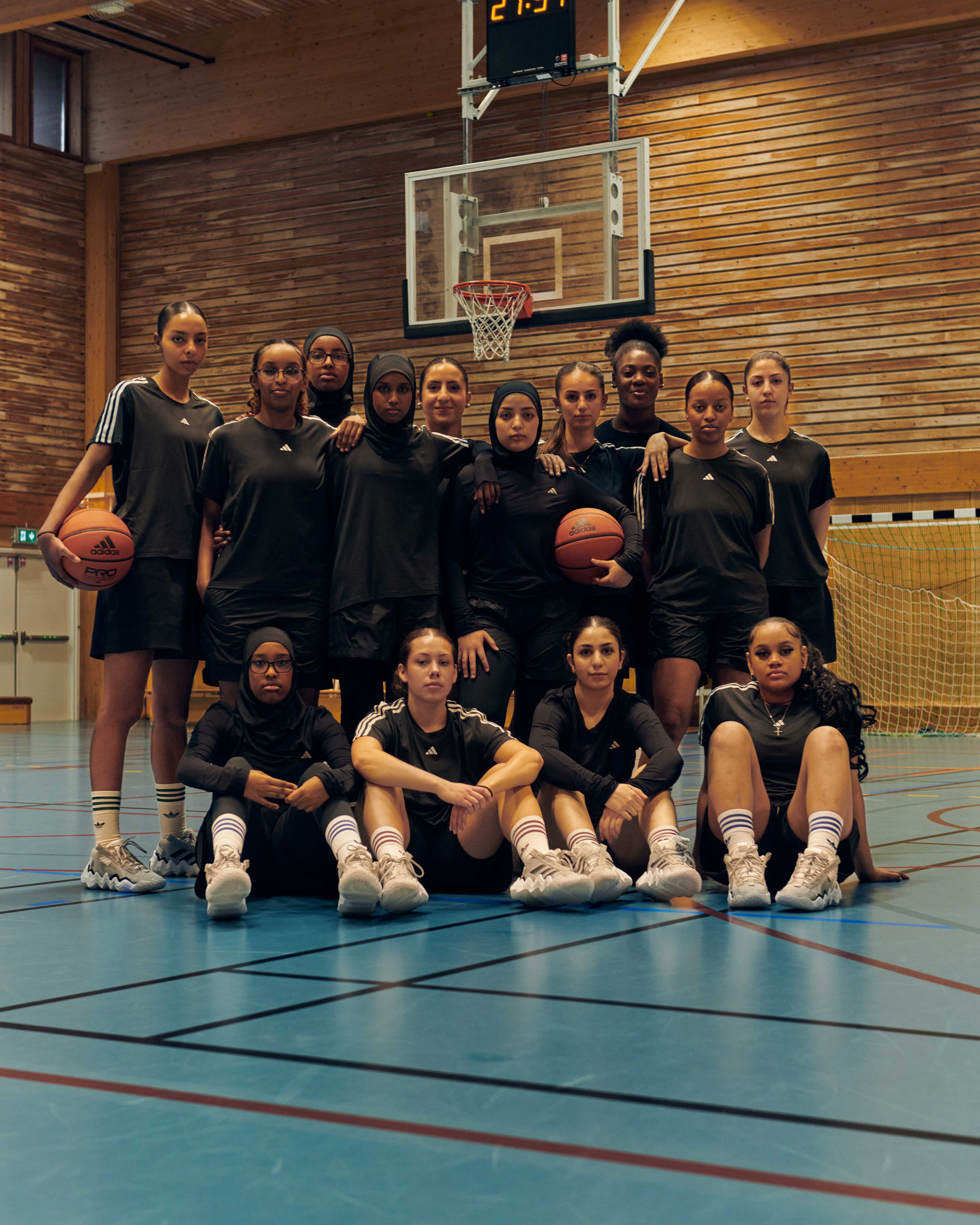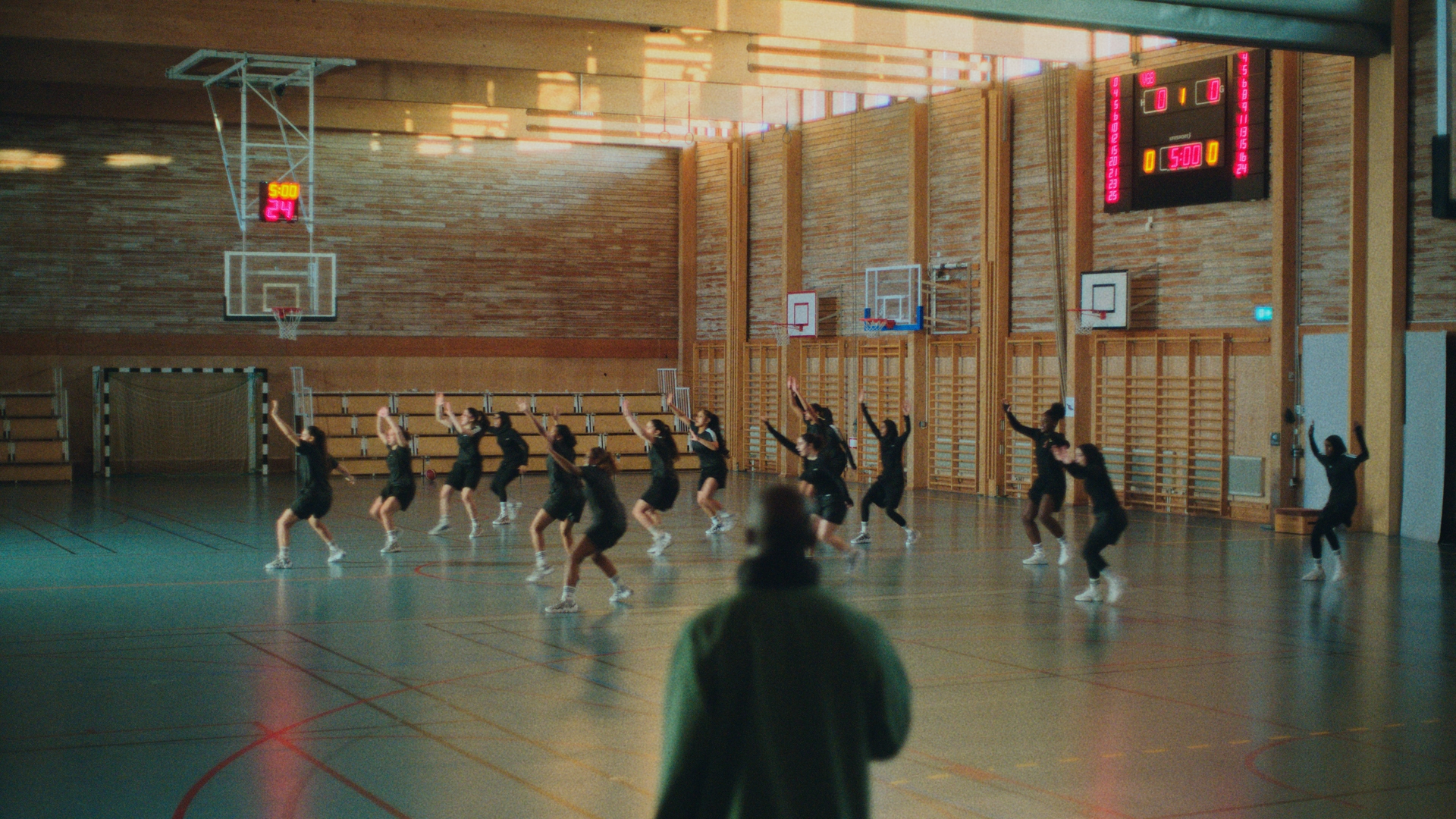VISION GENERATION BALL
Zahur Said, 18, Manar Khalafalla, 17, and Fauziah Adam Morllah, 14, have been friends for five years. They got to know each other through Vision Generation Ball (VGB), where they all play basketball. They all have different stories about how they found the sport, but the reason they stayed with it is the same: the sense of community.
“You quickly understand how much it means to have a hobby. You have the energy to get through your schooldays because you know you have basketball waiting for you. You don’t feel judged here, rather you can be yourself and everyone can chill with everyone else,” says Zahur.

One major reason behind the team’s strong sense of community is their former coach, Yacouba Barry. He has been there for them since day one, and the girls describe him as a coach, a big brother and family, all rolled into one.
“Our coach has been so important. With him, I have really been able to be myself. He sees us and this provides security. You feel that this is a family. He doesn’t just teach us how to play basketball – for him, a key aspect is how to act outside of basketball as well. At school and so on. He really cares about us, and a big part of my development is because of him. I don’t think anyone has ever done the things that Yacouba has done for us,” says Manar, at which Fauziah adds:
“He sees us as his children and is passionate about us. He does the little things that others don’t do, and yes, he’s there. Even though he’s not our coach anymore, he always will be in our eyes. He’s our brother and our dad, and whenever you look towards the stands, he’s there cheering.”

The strong sense of community within the team is also clear evident when they talk about Ramadan. Since many members of the team fast, they find support in each other, while those who aren’t fasting also do their best to offer support and encouragement.
“It’s easier when I come to the hall than when I don’t. Because when I come here, the time goes faster and we push each other,” says Zahur. At this point, Fauziah recalls an occasion from last year:
“Last year Manar was ‘dying’, so I took her hands and we ran together. And sometimes, people who otherwise don’t fast will fast with us to show us support – that’s what the community is like here.”
And Manar agrees.
“It can be a bit difficult during water breaks, for example, when people go and drink water, but many will move away to drink out of respect for us. But it’s more about the mental side rather than the physical. We were taking part in the playoffs last year and we won our games, even though a lot of us were fasting. We weren’t even drinking water, but despite that, many of us got an awful lot of playing time.”
Zahour, Manar and Fauziah explain that they view Ramadan as a holy month, and that it is a period of celebration rather than suffering, as many seem to believe. The sense of community is stronger than ever, and people spend time with friends, family and neighbours every day. Despite this, however, they feel that many people are prejudiced when it comes to Ramadan, which has become clear in school.
“If you’re tired on any other day of the year, no one will say anything, but if you’re tired when you’re fasting, people immediately say ‘Oh, your mum is forcing you. Poor you’. But no one is forcing me. I could have stopped if I didn't believe in this. And I also don’t understand, as my life is shared with the entire community,” says Zahur.
And the others agree.
“People present fasting as a bad thing, something you are forced to do. I remember people at school forcing me to eat and threatening to call my parents if I didn’t. You feel that people don’t care about you at all until the day you fast. You try not to be affected by it, but somehow you still feel like you can’t bear to go to school the next day.”
But in the basketball hall, it’s different.
“If I had changed teams, I would have found it hard or felt left out, but here I know that there are many others who are also fasting. It’s something we have in common, so everyone is sharing the same feeling,” says Manour. Fauziah adds:
“Yes, and after the training sessions, we usually break our fast together. This brings you together during Ramadan. For example, we had a potluck dinner here in the hall last year, at which we broke our fast together.”
What would you like others to know about Ramadan and what it’s like to fast and train?
“Personally, I don’t really need anything other than for people to be aware of it, and also to understand why you may be a little more tired or may need to take slightly more breaks. People don’t need to adapt that much, but as long as they know about it and respect it, I feel safe,” says Fauziah.
Follow Vision Generation Ball on Instagram, @vgb_sthlm

